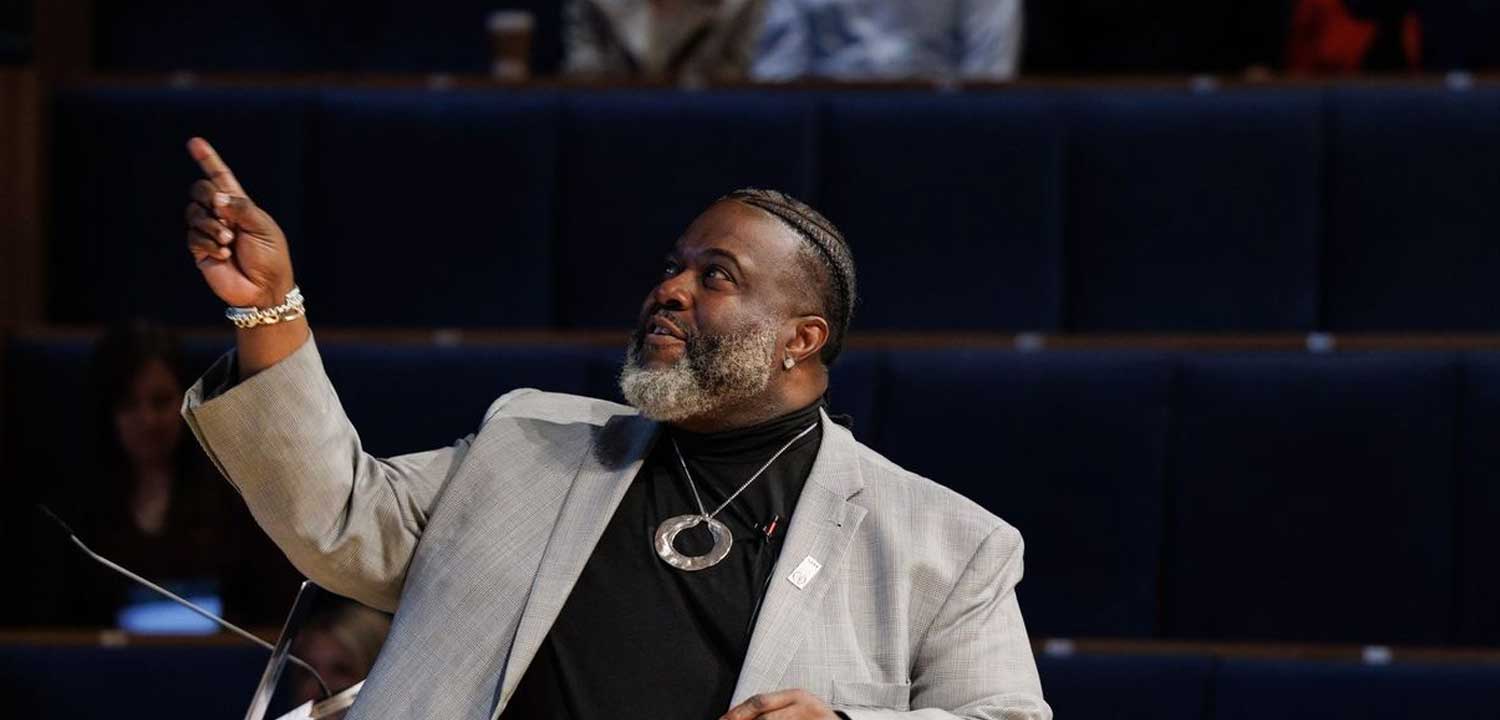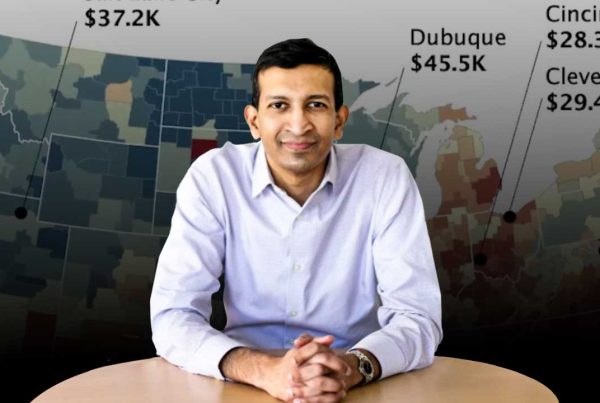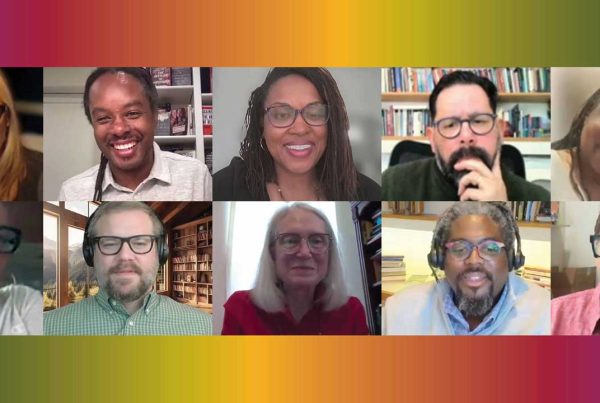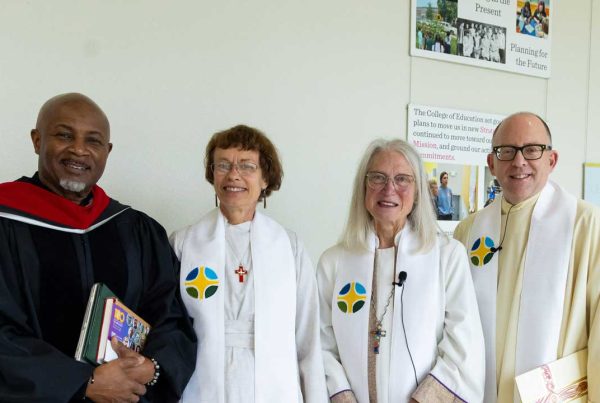Faith & Action Spring Conference – Lessons Learned
With a deep, solid voice, Rev. Dr. Jamie Washington, president and co-founder of the Social Justice Training Institute, set the theme for the Faith & Action Spring Conference on April 18, with a hymn: “Then my living shall not be in vain, no my living shall not be in vain, if I can help somebody as I pass along, then my living shall not be in vain.” Anchoring a morning that also included Marion County Public Health Department Director and Chief Medical Officer Dr. Virginia A. Caine as well as a panel discussion moderated by Hiba Alami of the Indiana Muslim Advocacy Network and featuring Rabbi Aaron Spiegel of the Greater Indianapolis Multifaith Alliance, Josh Riddick representing Faith in Indiana, and Sam Snideman of the United Way of Central Indiana, Washington encouraged the audience to enter into the work of poverty mitigation boldly, with eyes wide open. Following are some lessons we learned from the conversations.
- The stats are sobering. Marion County Public Health Department Director and Chief Medical Officer Dr. Caine opened the day with a series of slides about poverty and how minority populations are affected more than whites in Marion County. For example, Black residents experience nearly three times higher unemployment rates than white residents. Pay is unequal as well, as white residents have an average income of $75,000 a year, while Latino residents earn about $61,000 and Black residents earn roughly $42,000. The result? More than a quarter of Black residents live below the poverty level, compared to 22% for Latino residents and 10% for whites.
- We must embrace tension. We cannot discuss the issues that swirl around poverty unless we embrace the tension inherent to such conversations – including opposition. “Do not be deterred by resistance,” Washington said. “There’s been no culture change without it.” One big tension that derails many people is the reality that there will be no closure. “We’ve got to keep working even when we don’t have a win,” Spiegel said.
- “Context before content.” So often, people see a problem and immediately jump to solutions without understanding the context. Get to know the full situation before assuming you have quick answers, Washington said. Part of that process should be acknowledging past harms.
- Housing is foundational. Safe, secure and sustainable housing is foundational to a stable life, but it’s a resource that isn’t accessible to all. One big problem: evictions. “This week in Marion County, 500 families will be evicted,” Spiegel said. And when he says “families,” he means all ages. “The most common age for someone in Indiana to experience eviction is childhood,” he added. Low rates of home ownership and lack of affordable housing play key roles in this challenge. Caine said 63% of black residents are renters, as are half of all Latino residents, while only one-third of whites rent their homes. Spiegel pointed out that Marion County is 30,000 units short of having enough housing for its lowest-income residents. The impact of this housing insecurity goes well beyond a roof over one’s head. Snideman described how housing insecurity destabilizes families in ripple effects that have broader implications for society. Spiegel asserted that the number one social determinant of poor mental health is insecure housing.
- Mental health matters. Poor mental health is an acknowledged contributor to poverty, especially when it goes untreated. Caine pointed out that 22% of Indiana adults have some sort of mental illness, but 51% of them do not receive treatment, and 56% of youth who reported having major depressive episodes did not receive mental health services. Riddick said the community needs to continue to increase our understanding of mental health, no longer addressing mental health crises as criminal. “In our state, people deserve care, not handcuffs,” he said.
- Support the generations. Poverty is not an individual problem; it’s a household problem. That’s why United Way embraces a two-generation approach to addressing poverty. “We understand that when you invest in children inside of a home, it makes sense to also invest in the adults,” Snideman said. “When you invest in the adult, there’s almost always something that needs to be invested in the child.”
- Leverage self-interests. Find out what will motivate people to act in opposition to poverty, and then push them on that point. The result can be a sense of shared cause. “I want to move people based on their self-interest to create collective change,” Riddick said.
- “Collaborate, collaborate, collaborate.” That’s how Spiegel responded when asked to issue a call to action to the community. He pointed to alliances in the community he described as “sacred friendships” in which everybody respects each other and acknowledges their shared agenda. “We have to know each other, we don’t have to agree,” he said. Washington urged the audience to “speak your truth, but know there are other truths in the room.”
- Know your role and make the most of it. Be aware of your place in the conversation, the gifts you bring to the effort and the way you can be most effective, and then lean into it. “We need all of us, but we don’t need all us of doing the same thing,” Washington said. Added Riddick, “We don’t need every politician protesting, and we don’t need all of the protesters becoming politicians,” Riddick said. “Work where you are.”
- Build on success. Asked what gives him hope, Washington said simply, “Remembering how far we’ve come.”
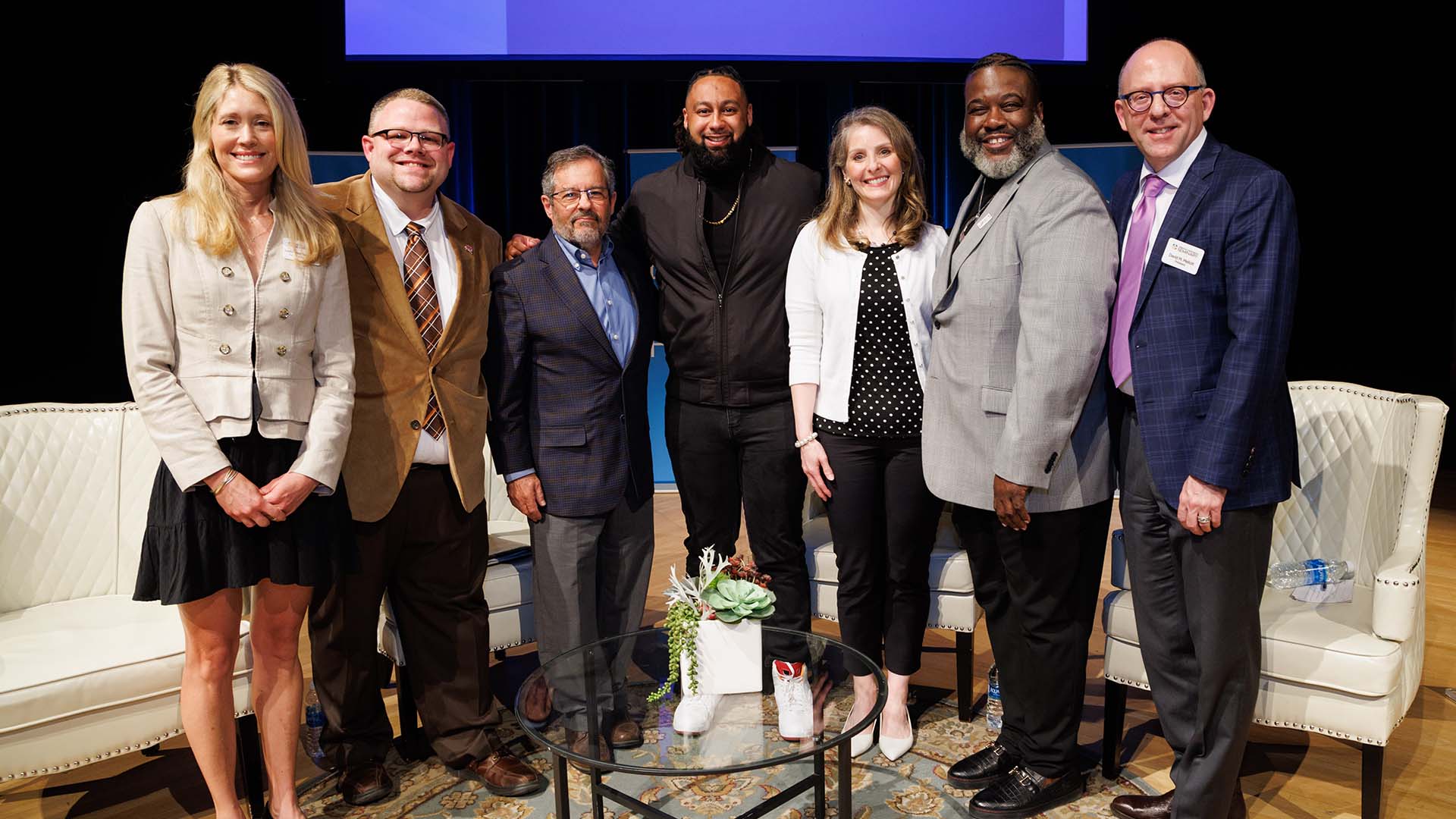
From left: Lindsey Nell Rabinowitch (Director of the Faith & Action Project), Sam Snideman (United Way of Central Indiana), Rabbi Aaron Spiegel (Greater Indianapolis Multifaith Alliance), Josh Riddick (Live Free USA), Hiba Alami (Indiana Muslim Advocacy Network), Rev. Dr. Jamie Washington (Social Justice Training Institute), and Dr. David Mellott (CTS President) pose for a picture at the 2024 Faith & Action Spring Conference.

